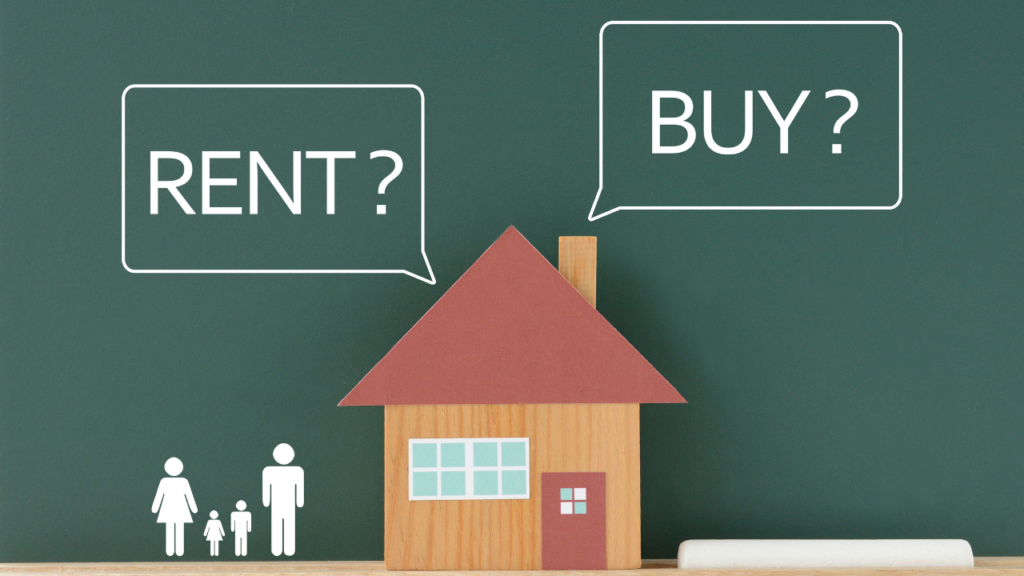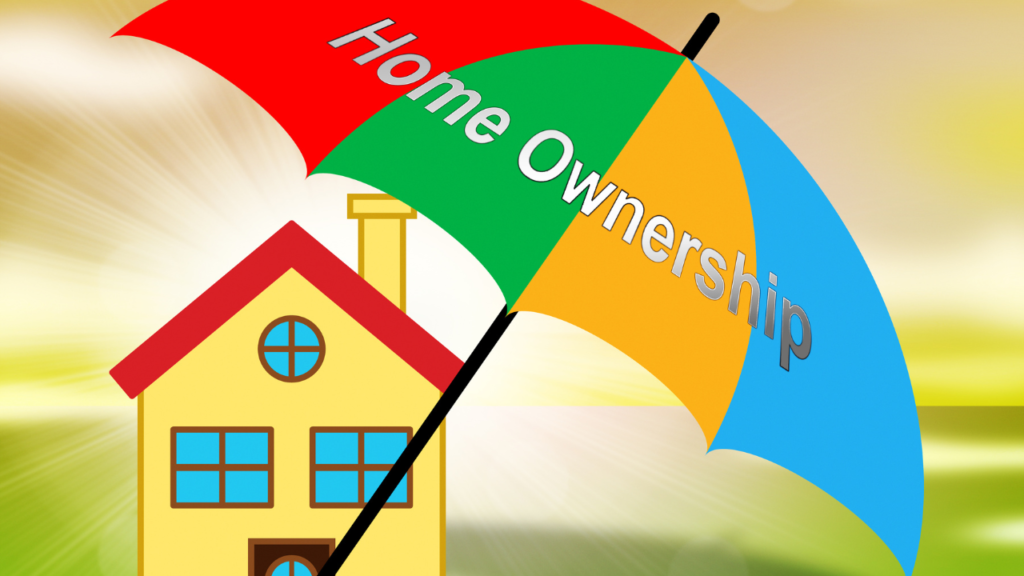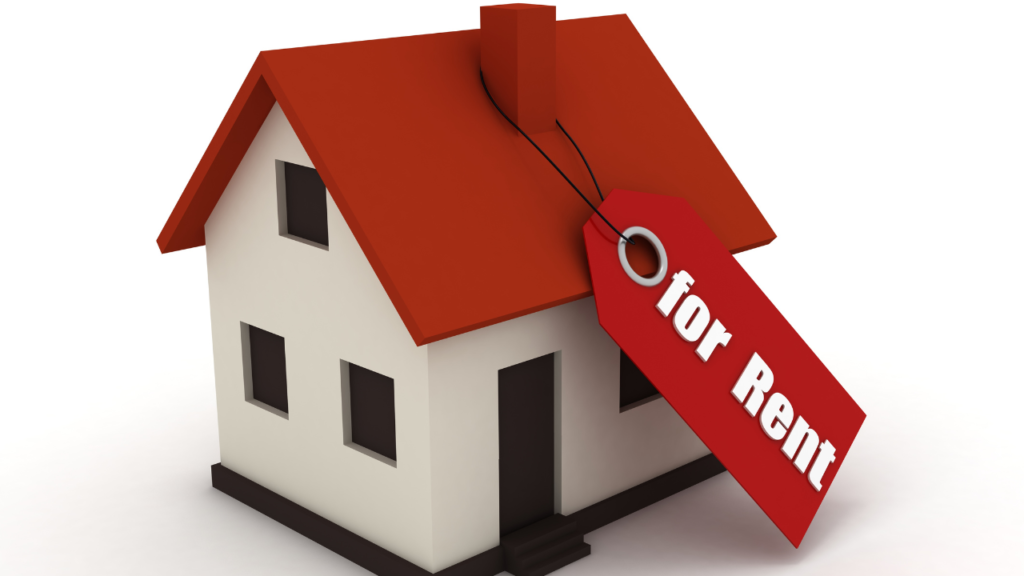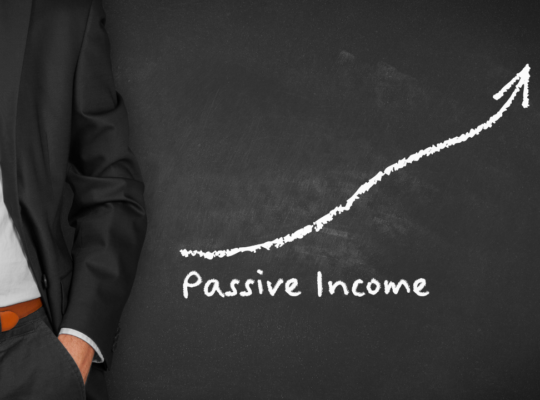
The debate between “buying vs. renting a home” appears tedious. It is more an issue of decision and budget than of right or wrong.
Owning a home is a major accomplishment, particularly among Indian households. If you have a reliable source of income, especially if you are married and both of you are employed, doing so is considered as the natural course of action in our Indian society. But, there are a lot of considerations to make before buying a property, so this is not a simple choice. Renting a home could be a more practical and affordable choice. Yet nothing compares to the convenience and security of home ownership.
So, which one is better – buying a house or renting one? Let us evaluate both the options in this blog:
ADVANTAGES OF OWNING A HOUSE:
High emotions:
More solace than any other thing in the entire world may be found in having an eternal roof over your head. It fosters a feeling of safety and acceptance. In addition, you feel attached to your home and want to take good care of it. Future generations can inherit it, giving them security to fall back on (at least on the land value, which will increase as opposed to the building value, which will depreciate). In the end, owning a home of one’s own brings mental peace and the ability to maintain it however one pleases.

Valuable investment:
As a homeowner, you’ll have the opportunity to accumulate equity when the value of your house rises as a result of the expansion of the local housing market. The more equity you have in your property and the more money you stand to gain from selling it, the longer you own it. Home equity increases your total wealth and can be used as security for a loan or line of credit in the future.
Not only that, you may also profit from tax advantages when you buy a home, which we have briefly covered below in this blog. Mortgage interest may be deductible by homeowners who categorize their tax deductions in order to lower their taxable income.
Renters can still grow wealth; but, if renting is more affordable than purchasing, you’ll need another strategy, such as continuously investing the difference between EMI and rent, which is the key takeaway from this blog, as discussed further below.
It reduces the costs of moving:
Moving sometimes is eliminated when you own a home. But moving can happen in rental housing for a variety of reasons. Rent increases have the potential to make a situation unaffordable. The leasing agreement’s specified time period may have come to an end. Continuous moving may be stressful and expensive. Finding a new place to stay, packing, unloading all of your stuff, take time as well.
EMI vs. Rent:
Regardless of where you reside, there is some sort of expense. When you reside in a space that is not your own, this takes the shape of rent. On the other hand, EMIs are typically used to pay for property purchases. This is a monthly expense much like rent. The good news is that every payment puts you one step closer to purchasing the property.
Considering all of this, purchasing your own home is advantageous. Yet, we must also consider the opposing viewpoint before drawing a conclusion, supported by an illustration of the optimal approach that we can take here.
ADVANTAGES OF RENTING A HOUSE:

Renting is an economical option:
Most people do not prioritise buying a home due to the rising cost of real estate and other costs. Many working adults find that their income does not increase in step with their rising costs. Also, in nations like India, rent is substantially less expensive than EMIs. Although it may vary from city to city, most Indian urban centres have this characteristic. Prior to choose to purchase or rent, it is important to do this comparison.
You do have Flexibility:
A home is a fixed asset. You are tied to the location where it is located by. You seldom know when you might need to relocate from one place to another in the current fast-paced environment. Renting a home increases your flexibility in a variety of ways. You could choose a residence nearer to your place of employment. Later on, you might want to settle down near a reputable school for your children. In the future, you could even wish to reside in the same neighbourhood as your parents. The residences in these places, nevertheless, might not be inexpensive. Renting the property makes more sense because the cost can fit inside your budget. Also, it will better meet your demands.
Renters could live in almost anyplace. You can leave your rented home to migrate to another city without needing to sell your home. Although rents might be costly in places where property values are similarly high, renters are more likely than home buyers to find a reasonable monthly payment.
No Down Payment:
Renters also get a better financial bargain in terms of the initial cost. Tenants are usually required to pay a security deposit equal to five months’ rent. This money is also theoretically refunded to tenants when they leave, assuming they have not damaged the rented property.
When acquiring a home with a mortgage, however, you must have a substantial down payment—typically approximately 20% of the property’s worth. Of course, the down payment creates equity in the house, which grows as the mortgage is progressively paid off. Yet, the amount required for a down payment on a property is substantially greater than a rental security deposit. People who cannot afford a down payment are better off renting.
Lower costs involved:
While having a property is normally every Indian’s ambition, you should do your math if you believe it would be a beneficial long-term investment.
Purchasing a home entails several expenses. It is not only the EMIs that you provide. Depending on the circumstances, your bank may levy legal costs as well as additional commissions and charges. This is in addition to the registration fee and any applicable taxes. Moreover, you will also have to pay taxes on property every year.
One of the advantages of renting a property is that there are no maintenance or repair expenditures. This implies that if you rent a home, your landlord is responsible for any upgrades and repairs.
Finally, the cost of renting is lower than the cost of purchasing. Renters pay less for various facilities, housing costs, and so on than purchasers.
RENTING VS BUYING – COMPARISON WITH SOME CALCULATIONS:

“Why should you pay rent when you can pay it as an EMI and build wealth in the long term by owning a house?” is the most compelling advice you will receive. This advice might come from your parents, friends, or relatives.
Homeownership has traditionally been considered a measure of success, but trying to compare renting to owning isn’t that simple. When deciding whether to rent or purchase, there are several financial considerations and lifestyle variables to consider.
On the surface, it appears to make sense to purchase a property since the equity worth of the house rises but the rent you pay does not. Nevertheless, there is a big issue in this advice as you look further. The key factors are India’s exorbitant real estate prices and our attitude to purchasing a home.
For example, assume that a smart person called Karthik rents a 2-BHK house in a premium location in Chennai for Rs. 30,000 per month. Now, if he needs to purchase a house with an EMI equal to his rent, he won’t be able to locate one in his current neighbourhood. Hence, in order to accomplish this desire, he must compromise and find a property on the outskirts of the city, as well as sacrifice on his lifestyle.
Assume Karthik does not want to make that sacrifice (like most of us do) and instead decides to take out a larger loan and purchase a property in the city. That brings us to the second issue, which is the home loan we take out to acquire the house. Given the ease with which loans are now available, we take out large loans and restrict our monthly budgets to ensure that we can pay the EMIs. Another aspect to take into account is that – for the initial down payment required when taking out a house loan, we go all out, using all of our saved funds and, if that is insufficient, we seek assistance from our parents, friends, or relatives.
Finally, you have your own home, which is a wonderful experience, but you are unable to save for other major life objectives such as retirement, kids education, marriage, and so on. When combined with the current employment market uncertainties, this might lead to a lot of worry in the future.
Let’s perform some basic math so you can choose the ideal option for yourself.
Let us bring our character Karthik back here. Karthik’s two-bedroom residence in Chennai would cost him roughly Rs 1.3 crore. Let’s see how this goes for him now.
He puts down 20% of the total price, or Rs 26 lakh, on the property. The bank will pay the remaining Rs 1.04 crore as a loan . With an interest rate of 8.5 percent (as of February-2023), and a payback term of 25 years, the EMI would be roughly Rs. 83,000 per month. As a result, his monthly housing expenses would increase from Rs. 30,000 to Rs. 83,000. This is a 175% rise.
Similarly, if you obtain a Rs 1.04 crore house loan at 8.5 percent interest, you will owe the bank Rs 2.49 crore at the end of 25 years. The interest alone might equal to Rs 1.46 crore. As a result, the loan’s interest cost is more than the loan itself.
Nonetheless, we cannot ignore the reality that house loans provide tax benefits. This is another significant reason why many believe purchasing a home is a good investment. With tax savings on the principal amount, interest paid, and additional perks if you are a first-time buyer, it appears that home loans are a good method to save money and purchase a home.
Let us see the tax benefits on a housing loan:
Section 80C allows for a tax deduction of up to Rs. 1.5 lakh for the amount paid. Stamp duty and registration fees may also be included for this tax deduction.
Section 24 allows for interest deductions of up to Rs. 2 lakh. Tax discounts are only available for properties that are completed within five years. If it is not completed within this time range, you can only claim up to Rs. 30,000.
First-time house purchasers can claim an extra Rs. 50,000 on the interest amount under Section 80. The loan amount cannot exceed Rs. 35 lakh. The property must be worth less than Rs. 50 lakh.
On the other hand, in the case of renting, there is no debt and we also receive the HRA tax advantage. We are not going into depth about the HRA component and its tax consequences in this blog since we presume that readers are aware of the HRA component in terms of tax computation, and our goal here is to compare and decide which is a better option – renting or purchasing a house.
Returning to the topic at hand, living on rent for the first few years will give you a chance to sort out your finances and save some money for a down payment on a property.
Should we live on Rent forever?

Living on rent forever – This is not this blog-post’s final conclusion. Having your own house is a huge milestone for most Indians and there are always sentiments associated to it. Yet, it is a significant financial choice. Hence, only buy a house if you can put down at least 60% of the purchase price.
Let us return to Karthik for a moment. In Karthik’s situation, he should have at least Rs. 65 lakhs with him before considering purchasing a Rs. 1.3 crore residence. While amassing so much money may take time, it assures he is not burdened with debt needlessly.
Now we will see how can Karthik save or invest so that he can reach 60% of the property value. As Karthik will pay Rs. 83,000 as EMI, deducting for 30,000 rent, we can see that he can save Rs. 53,000 every month. So, if he invests that Rs. 53,000, in an index fund, after 10 years, his investment value will be Rs. 1.21 crore. It may be noted that we have not included the probable increase in rent in the next 10 years (as including those for our calculations will further complicate the math), so we can assume the fact that Karthik can save this Rs. 53,000 every month for the next 10 years. We can also take cue from the fact that Karthik will remain in job for the next 10 years and will continue to get annual hike in his salary and hence allocating this Rs. 53,000 per month should not be an issue for him.
At this point, we also should remember the Rs 26 lakhs that Karthik was paying upfront for the down-payment for his house. So we need to invest this lumpsum amount also in an index fund for this 10 year period. This lumpsum amount would have reached Rs. 86 lakhs at the end of 10 years.
Finally, we can see that Karthik has accumulated a wealth of Rs. 2.07 crore (1.21 crore + Rs. 86 lakhs) at the end of this 10 year period.
If you assume that Indian real estate market is increasing at 8% per annum (after accounting for all the maintenance and transactional costs over this 10 year period for owning a house), the value of the house that Karthik has bought today will be Rs. 2.8 crore after 10 years.
We can clearly arrive at a conclusion that Karthik can buy this house of Rs. 2.8 crore with this accumulated corpus of Rs. 2.07 crore (which is around 74% of the property cost) and can get a loan for the remaining Rs. 73 lakhs (remaining 265 of the property cost), which he can easily repay with his increased salary at the end of 10 years, and can accommodate this EMI cost within his budget with ease.
By following this approach, Karthik will not have an increased debt burden while buying a house.
So, the final thought that we arrive based on illustration from Karthik’s scenario is that – Rather than buying a house now with an increased debt burden (increased debt burden means having 80% of the property cost as housing loan and only 20% as down-payment), you can delay your house purchase for 10 years, accumulate corpus for your purchase, and pay more than 60% of the property cost as a down-payment from your accumulated corpus. This 10 year period is not a thumb rule. If you can accumulate the corpus within that period, say within 7 years, then you can buy the house at the end of 7 years itself rather than 10 years.
But the only caveat to this approach is that – you need to be disciplined and do the investment consistently month-on-month.
Conclusion:
Choosing between renting and purchasing isn’t an once-in-a-lifetime choice. You can return to the question at any moment in your life if your lifestyle or finances change.
Ownership of a house may be advantageous to homeowners in the long term owing to the amount of equity they accumulate in their property. Renters have nothing to show after years of rent payments. But, for individuals who wish to escape the inconveniences of homeownership, such as maintenance costs and property taxes, etc., renting may be a preferable alternative. Of course, it is dependent on a person’s lifestyle and financial position. Delayed home purchase, as stated above in this article, is one such option that home buyers can consider in order to maintain an equal balance by not becoming overburdened by debt while simultaneously owning a property.





